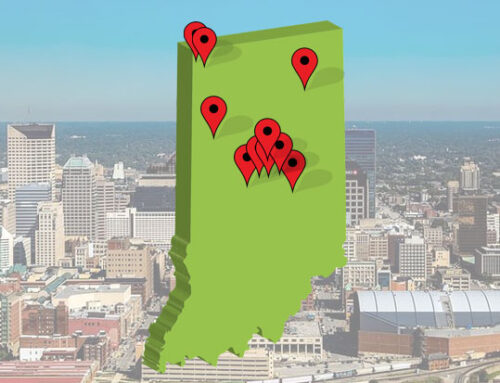Every day, approximately 30 people die and 800 are injured in drunk driving crashes in the United States alone. In 2017, drunk driving deaths equated to one death every 48 minutes. Although the deaths have decreased in recent years, drunk driving crashes have resulted in more than 10,000 lives per year. While younger drivers make up for nearly half of drivers involved in drunk driving crashes, it is important for all drivers to understand the risks associated. Driving drunk could result in arrest, revocation of license privileges, damage to vehicles, injuries to the driver, and importantly – severe injury or death to an innocent victim.
Alcohol Effects on Driving
In every state the legal drinking age is 21 and it is illegal to drive with a BAC of .08 or higher. Some drivers, especially younger drivers, believe they can competently drive after drinking. However, even small amounts of alcohol can impair driving. According to NHTSA, 1,837 people killed in accidents related to alcohol had drivers with a BAC of .01 – .07. A BAC of .02 predictably causes a decline in the ability to perform two tasks in the same time. At .05, drivers have reduced coordination and difficulty responding to emergency driving situations. Further, at .15 drivers have substantial impairment in attention to driving tasks and necessary visual and auditory information processing.
Repeat Offenders
Drivers involved in fatal crashes with a BAC .08 or higher are 4.5 times more likely to have a prior DUI conviction than the drivers with no alcohol when involved in those crashes. Of all drivers arrested or convicted of drunk driving, one third of them are repeat offenders. And 50 to 70% of drivers convicted with a DUI/OWI continue to drive with a suspended license. Yet, those intoxicated drivers have driven drunk approximately 80 times prior to their first arrest.
Despite these factual finding, drunk driving claims thousands of lives each year. On average, 2 out of 3 people will be involved in a drunk driving crash during their life. Many states have implemented sobriety checkpoints and others require ignition interlock devices, which requires the driver have a BAC below a preset limit, usually .02. Combating against drunk driving, states have started adopting stricter drunk driving laws such as laws criminalizing refusal to submit to an alcohol test and all offender ignition interlock laws, according to MADD.
The risks associated with drunk driving are extreme; a first violation can cost around $10,000 in fines and legal fees plus the devasting result of an injured 3rd party. If you have been injured by a drunk driver, you may be entitled to compensation. Our personal injury attorneys passionately fight for our clients and strive to achieve the reward you deserve.





